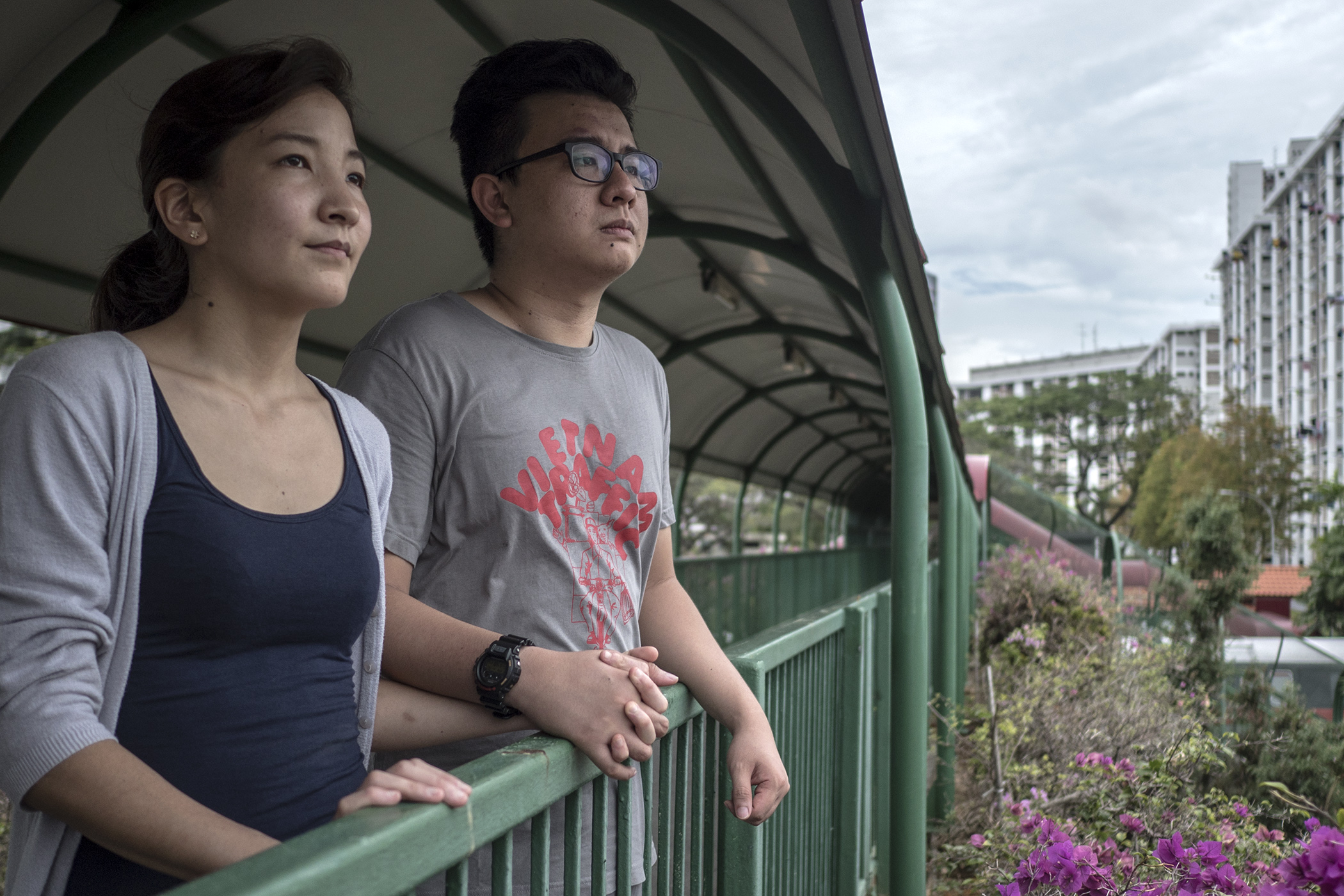"Almost Famous" is a new feature interview series on Mothership.sg. Starting this July, we bring you in-depth stories of people who could be more famous, with a new interview released every fortnight.
We kick things off with an exclusive wide-ranging interview with Ai Takagi and Yang Kaiheng, the couple behind now-defunct socio-political site TheRealSingapore.com. This was conducted in April, prior to the commencement of Takagi's 10-month jail sentence for sedition. Read more about their case here.
On Tuesday, July 5, 27-year-old Yang Kaiheng will go to jail.
With good behaviour, his eight-month sentence will be cut by a third, so he'll be out before Christmas — possibly earlier than that if he receives home detention for part of it.
Meanwhile, his wife Ai Takagi is into her third month of imprisonment now, and is expected to be released by around the same time, also on good behaviour.
It's fair to say they'll be spending a good part of this year behind bars, and for good reason — the two were responsible for the worst case of sedition Singapore has ever seen.
Don't recognise their names? They're the couple behind, and who were profiteering from, The Real Singapore, which now — to most people who remember it — is seen as a poisonous, vitriol-filled, misleading and sensationalising website.
Takagi, a 23-year-old Australian citizen, was convicted of four charges of sedition, out of seven, with one more of failing to produce evidence to a police officer.
Two weeks ago, her husband was convicted of six, breaking her record — after seven decidedly embarrassing days on trial, two of which were particularly spent seeing his defence torn apart.
Contemplating the events that led to this point for Yang and Takagi brings up quite a few questions — for indeed, who could possibly have the audacity to create the swirling vortex of hatred that was TRS? What could these people possibly have been thinking to believe this was a good idea?
After all, treating the submissions sent their way in the flippant manner they did, wantonly publishing them with nary a second thought, brings to mind the idea of an anonymous forum — at least on HardwareZone, people have usernames and their identities can be traced — masquerading as a credible "news website", but that's precisely how the site was run.
And more than $500,000 in online advertising earnings (part of which was used to pay off a 30-year bank loan in less than one) later, the two are paying the price — not in having to pay what they earned back, but in the form of jail terms.
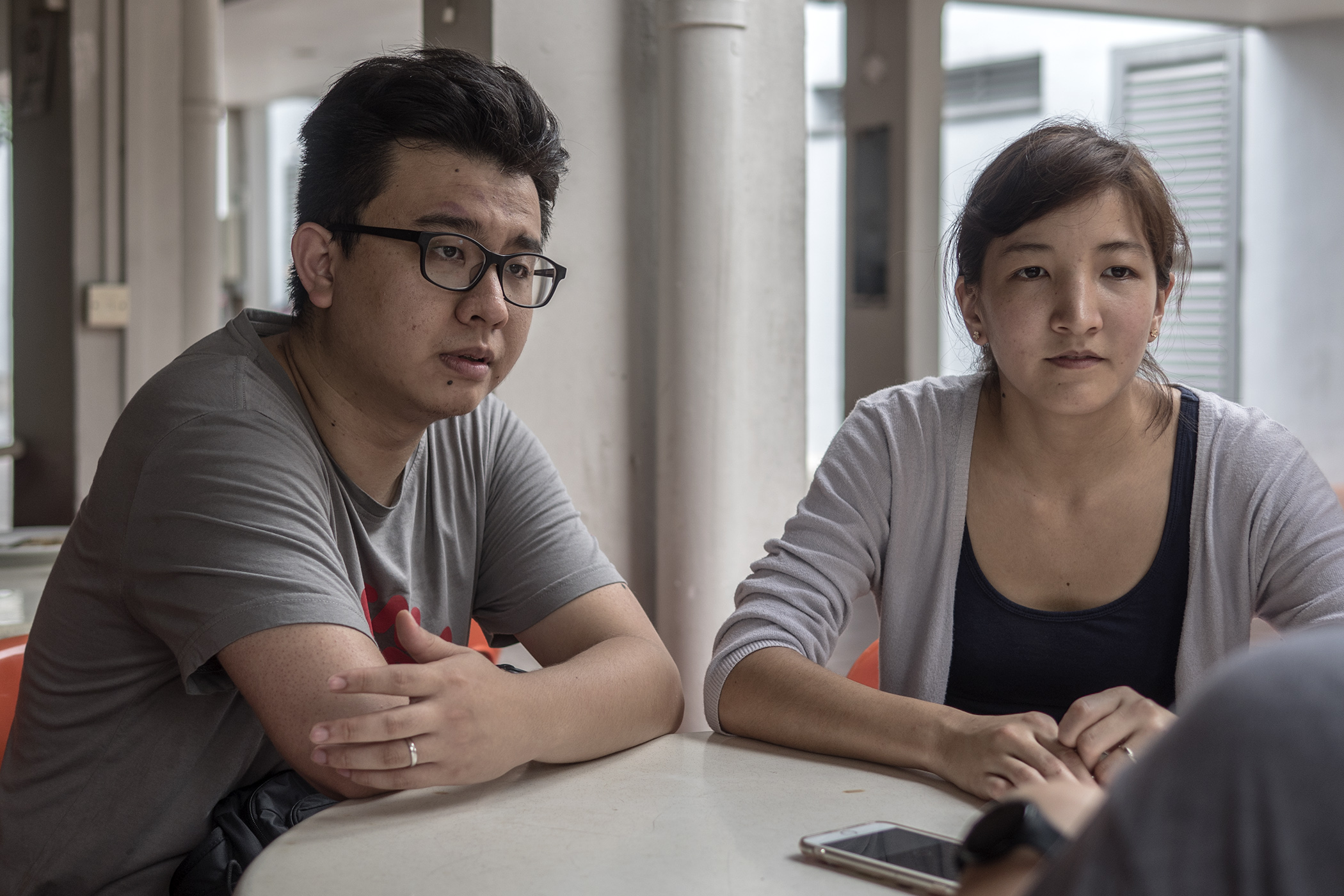 Photo by Lim Weixiang for Mothership.sg
Photo by Lim Weixiang for Mothership.sg
In our conversation, the couple tells us they have had their personal broadcasting licenses specifically revoked by the Media Development Authority (MDA), beyond the default class broadcasting licence that The Real Singapore had. This means, they explain, that even if they wanted to, they are not legally allowed to start a new website or to post anything online.
And it seems they don't, anyway, after this experience.
The first thing they want you to know, though, is that to their minds, TRS was not "anti-Singapore".
“But she (Takagi) don’t hate Singapore. I don’t know why people keep saying that,” says Yang. “We are shocked that people say we want to see Singapore burn.”
“Ya! Everyone keeps saying like I hate Singapore, like a lot of the media or what, make it look like I have something against Singapore or I want to see people very like turn on each other. That’s rubbish! Not even close!” Takagi exclaims immediately, not bothering to hide her frustration.
We suppose for them, the idea of what is "pro-" or "anti-" Singapore is fluid and subjective — after sitting down with them, the overall message we gained was that for them, one's freedom of speech should trump societal harmony.
Unfortunately for them, Singapore's laws don't agree with their position.
A wannabe Singaporean
Understanding why they feel these things comes with the overall philosophy the couple had for the site in the first place, though — The Real Singapore, for them, was according to court documents “a website that allowed people to express their views anonymously, and without any restraint or censorship… as (they) felt that there was a lack of media freedom here”.
(In other words, they're saying they wanted the apparent credibility of a "news website" while being able to forgo the responsibility of editing and fact-checking the material published on it — whether that premise is viable, or reasonable, is certainly one worth debating. But nonetheless, that's where the two started.)
In truth, the way Takagi speaks and thinks about Singapore appears very much like how a Singaporean might behave in another country, especially a Western one — taking on their accents, albeit imperfectly and a bit earlier than one might be convinced for it to be genuine, and adopting various aspects of the country's culture and habits. You'll notice that she and Yang both speak seamless Singlish, and we deliberately strove to preserve what they said exactly as they said it.
So close she and Yang became that they moved in together less than a month after first meeting around September 2011, and Takagi found herself on her first trip to Singapore over her three-month summer holiday, staying with Yang and his family at his home.
"(I was) totally immerse in Singapore culture that time... I'm kind of like one of those people that like really pick up things quite fast lah I guess, so I come here then I like really can blend with people lah, then like get to know everyone very quickly. So I was quite interested lah."
Takagi says she noticed from the tone and nature of reportage in Singapore that it is vastly different from how it is done in Australia — by extension, she perceived civil liberties here to be far more limited than they are there.
There existed a gap, therefore, to her mind — one that she and Yang strove to fill, and eventually, well, create a successful business from.
A morning-to-midnight job
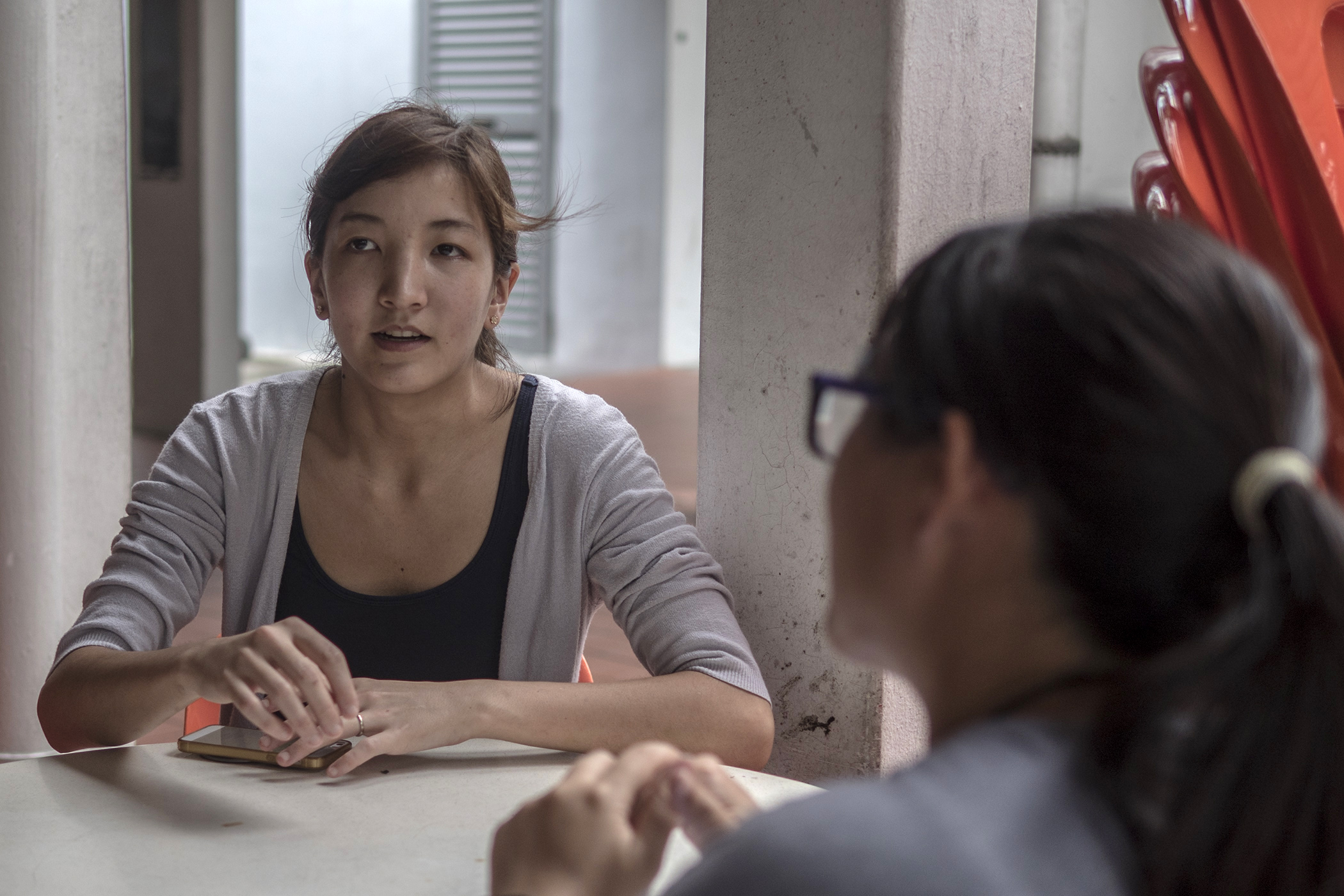 Photo by Lim Weixiang for Mothership.sg
Photo by Lim Weixiang for Mothership.sg
Takagi shares that she started "small" — posting about 10 articles per day, taking time outside of her regular schoolwork and lesson time to do so.
"I wasn't really all that social... actually it's because my course didn't really have that many contact hours — like I only went to school 10 hours a week, very little... so that's why I'm very free like that, got time to do this kind of rubbish!" she says with a self-deprecating laugh.
She spent an amazing amount of her time working on the site, though, sacrificing her social life, other co-curricular activities at the university, and eventually school itself.
"I got really, really immersed in it. I really loved doing everything, I loved working out the technical details... I worked out the CSS to change the colour and the fonts here, and the indents here," she says. "You know when you get into something you really enjoy, you really can get stuck into it."
By the time TRS was at its peak, Takagi was publishing more than 30 articles every day — writing just three or four of them herself — waking up at 9am and working continuously until midnight.
The bulk of these, she said, were contributions that were published unedited — some of these "contributions" were also articles, complete with images copied wholesale from other news sites, which she says she didn't realise came from elsewhere.
We must say, though — given that some of these articles came complete with bylines, it's quite impressive that she, or anyone else assisting her with the site at any point, could claim to not know of their original sources. But we digress.
For "the average Singaporean"
We wondered how Takagi, an Australian law undergraduate, would explain the sensational tone and poor language she took, even with articles she wrote herself for the site.
This, she argues, boils down to the audience TRS catered to — "average Singaporeans".
"It's not so 'atas' — the language is all over the place, but that was actually purposeful. I see a lot of comments these days, they say 'lack of editorial', 'zero journalistic' or what — but it's actually because it's supposedly very casual and very 'citizen'... the English doesn't have to be very good, and if our English isn't very good, you also feel like 'I can still say what I want to say'."
It therefore follows, to her, that letters should be published as-is, without edits to language, grammar and, well, accuracy, in some cases. This also meant accepting and publishing what readers sent to her, even xenophobic-sounding submissions, although she insists that TRS is not a hate or xenophobic site.
"You can't really categorise the whole website like that — there's plenty of articles which aren't like that... the charges right now is about seven articles out of like, what, 30,000? And they happened to be about one topic, but because this is obviously what is getting the most media coverage, people say the whole website is like this."
Yang acknowledges that there are more xenophobic articles on TRS than elsewhere, but explains that it's because xenophobic people "obviously... can't write in to The Straits Times and expect to get published". To him, it's relative — what's rubbish to him is real frustration for the person who contributed the xenophobic letter, so why deny that person a platform to speak out?
The question here, we feel, would be do these xenophobic people deserve a platform to amplify their voice? Certainly, people who are unjustly discriminated against should speak out, but surely there are more reasoned ways to present what they say in a factual and objective manner.
Perhaps for Takagi, there was no possible way to strike a good — legal — balance for the site she was running, and when asked, she acknowledges her failure to exercise sufficient editorial control.
"We're not professional journalists"
But what about the misleading headlines, the false, unverified details, the blatant plagiarism?
"Again, yeah, that's the difficult part — that is where I didn't exercise enough control," Takagi concedes.
"But... if you want to be professional, you're going to end up with something that's not approachable. I think you can agree, something that has a lot of rubbish is going to be much more approachable — I use the term 'rubbish' very loosely here, for want of a better word."
One then wonders how Takagi perceived her readers — were they not deserving of better-quality content, or even, well, content that is at least accurate?
Yang adds that he understands content integrity, whether news is real or false, is important for a journalist, but said "we're not professional journalists".
"It (TRS) all along has been tabloid," Takagi adds, while pointing out that errors happen in mainstream media as well, which has teams of editors, while it was only her working on TRS.
Both have said in court documents during the course of the case that it is "impossible" to verify the facts of every article published, but in talking to us, we're not sure they recognise that, well, that simply isn't how it works.
"I take people's words for it. Maybe I'm a very trusting person. You say this happened, I'll believe you," Takagi says.
Again, unfortunately, that ain't gonna slice it.
At the same time, both say they did, on occasion, refrain from publishing submissions that looked blatantly fake.
"But a lot is just 'This is what happened to me today'. You know, who can say it didn't happen?" Takagi asks.
"I guess it's like, I was trying to publish a bit too many at once. It's not a problem for me — I was wrong, these seven articles were seditious and so I plead guilty lah. I accept that what. I could have done a better job editing."
Uh huh.
Taking that one step further, it would be a challenge to deny that the sheer volume of content Takagi was going for — which, as it turns out, she obviously couldn't handle responsibly — was motivated by the readership, and consequently, the five-figure revenue they were raking in on a monthly basis. This amount took care not only of Yang's Australian university fees, but also of rent, food, transport, salary for a number of full-time editors assisting Takagi and a new swanky house, fully paid up.
In fact, the final four months of the site's existence saw the pair earn more than AU$40,000 each month. January 2015 saw revenue at an all-time high of more than AU$53,500 (about S$53,700) — that's more than many Singaporeans' annual salaries.
"I knew there was always a bit of risk in what it was"
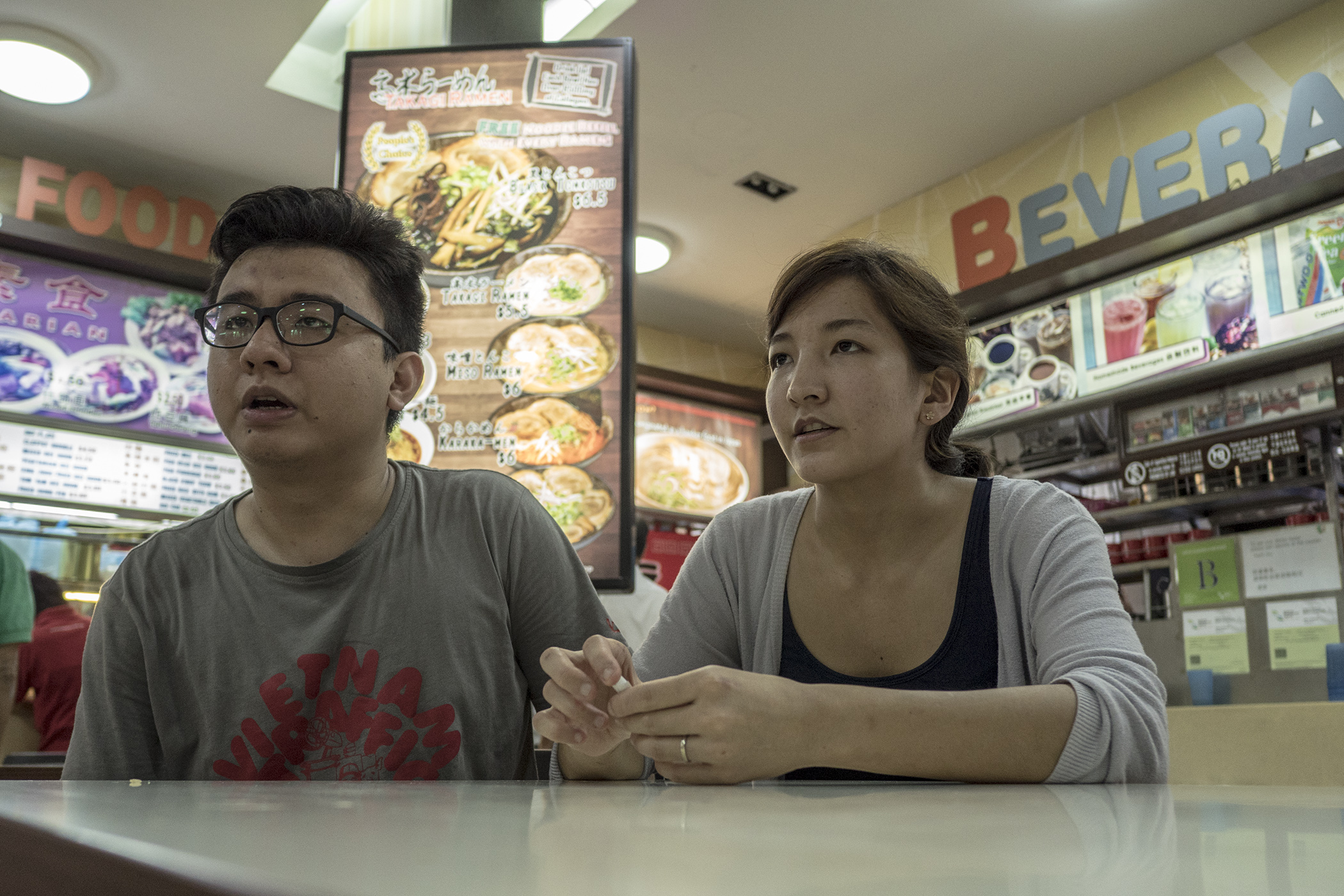 Photo by Lim Weixiang for Mothership.sg
Photo by Lim Weixiang for Mothership.sg
We asked if they recognised that what they were doing would have consequences, or was wrong or risky in any way, and both said yes — it was also acknowledged in court that both Yang and Takagi's parents had warned them about what they were doing.
Initially, as a result of the couple's multiple immigration checkpoint detentions — Yang says he and Takagi were always held back for between 30 minutes to an hour each time they returned from a trip, even if it was to Johor Bahru for a day — Yang's parents did initially ask Takagi to shut the website down. She qualifies this by saying they gave her "mixed messages", though, sometimes supporting what they were doing and sometimes urging them to be careful.
Takagi adds that her mother, who lived with her brothers in Australia — her parents are divorced and her father lives in Tokyo — long knew about the site, and had warned her that she would have to bear responsibility for its associated risks.
Even Yang admits to being "very scared" when the site was operating at its peak:
"I keep telling her to be careful. She really gets 100-over emails a day, and obviously she, one person, is not going (to be able to) vet through everything. And there are actually a lot of people deliberately sending fake articles to sabotage us, before we got arrested... it's carefully planned — (but) it's total crap."
"I'll sometimes show (Yang) these — 'look at this rubbish I got today!'" adds Takagi. "I mean... I think my attitude — I don't know lah. I was aware of it, I just felt that it was still okay."
She also says, rather appallingly and also very matter-of-factly, that if the police never descended on them on that fateful day in February last year, she would have gone on doing the same thing.
"I knew there was always a bit of risk in what it was. But ultimately i still felt that, like, the website is still ultimately about letting people say what they want to say. And it was wildly successful in that."
We felt the need to ask Takagi point-blank: did you at any point ever realise that what you were doing was not good for Singapore or Singaporeans?
We got a pregnant, three-second pause, a rare moment for a girl who speaks as rapidly as a bullet train, responding to every other question we asked almost immediately, and sometimes faster than we could keep up with.
Her answer was "Not really... not really." An awkward laugh. "That's quite a question. No, I mean, like, it's the way you look at something — there's a lot of perspectives you can look at it, like in the big picture."
And the big picture for her was that TRS was a place where people could come to and feel comfortable about expressing their views — whatever they happened to be, xenophobic, hateful, unfair or harmless.
It is interesting, though, to see how serene Takagi appeared to be about her then-impending jail sentence. Her saying "I'm going to jail for the next 10 months" could just as well have been her saying, "I'm going to the market to buy some vegetables".
"If you were to ask me this last year, when we first got arrested, (my sentence turned out to be) much higher than I thought — I was thinking we'll get (prison) for like a few months, and, well, 10 months is a bit more than a few months. But as the case went on, I got more of a feel as to what it was about, so our expectations also adjusted a bit. So it's not really... surprising."
Was it all about the money?
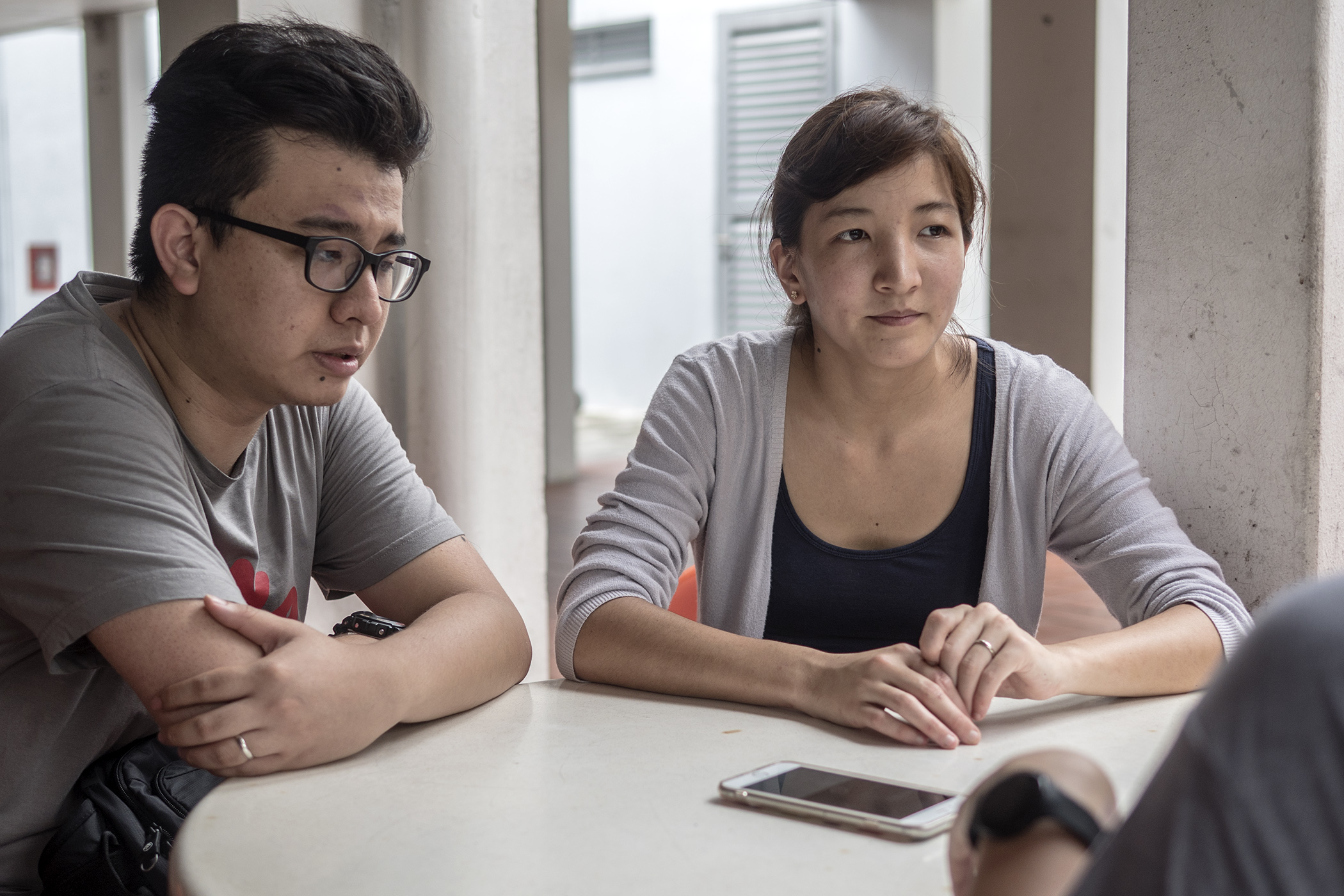 Photo by Lim Weixiang for Mothership.sg
Photo by Lim Weixiang for Mothership.sg
With all that said and done, one question was left on our minds: was it really all about the money? We asked Yang this after he was sentenced, at the close of his case.
"To be honest with you, I really started the website with the intention hoping to get more freedom to speech to Singaporeans if not I definitely wouldn't start the Tin Pei Ling page," he starts by saying, stating outright that it didn't start out being a "profit (-seeking) thing".
Yang admits to us that he really did care about making money, and that it eventually became a key focus of his — especially with the pressures of affording his university studies, pointing out to us as an aside that his parents told him they were not able to pay for it all for him, despite him being their only child.
"I used to think that freedom of speech means that you have to accept the views of a few extreme or side-lines articles, because ultimately it's still their honest view, even though I knew (the) majority of the public would not agree with them. I really thought something like TRS could have worked as long as I protected the identity of the editors and contributors. Obviously it doesn't work this way in Singapore."
He argues that it was both for passion and revenue, ultimately, that he and Takagi kept TRS going.
"I would not say it's solely for profits because I always believe in having passion in the work you do... Whenever I read a meaningful article on TRS, for example Singaporeans buying lunch for foreign construction workers, I feel happy and heartwarming too."
He continues to defend the presence of xenophobic posts on the site, though, arguing that they were "actual things that happened in Singapore".
"40 per cent of the residents in Singapore are foreigners, you are sure to have this sort of things happen right... By pretending these things did not happen is just silly."
And that at the end of the day, a "no-censorship" policy — at least by his definition — "doesn't work for Singapore":
"But I guess my regret is I could have exercise more restraints in asking the editors to delete comments — the no-censorship policy doesn't work for Singapore, and it will only get TRS into trouble which I did not foresee."
We also asked Yang if Takagi, who cannot respond to our follow-up queries now that she's serving her jail sentence, was money-minded in running the site too — he said his wife "is definitely not driven by money", though, sharing that Takagi comes from a "very well-to-do family".
That said, we couldn't help but factor in the existence of several Skype conversations where Takagi was pressing freelance web developers to solve problems she was facing with the site because readership, and by extension revenue, was negatively affected when the site was down. In response to that, he said she chiefly says those things to pressure them to work faster.
Sure, some may perceive the punishment to be rather extreme — jailing a couple of twenty-somethings for inciting rebellion against the government, or for stirring up hatred or negative sentiment between people of different races, nationalities or religions, just because of seven articles out of more than 30,000 that their site had.
But the lack of appreciation of the severity of what Yang and Takagi have done is a misstep one should be cautious against taking. Profiteering from hatred and anger is one of the easiest things to do in the online space, and the couple did it — whether they did so maliciously or not — for years.
You can read part two of this interview here.
All images appearing in this story are by Lim Weixiang for Mothership.sg.
If you like what you read, follow us on Facebook and Twitter to get the latest updates.
If you like what you read, follow us on Facebook, Instagram, Twitter and Telegram to get the latest updates.
